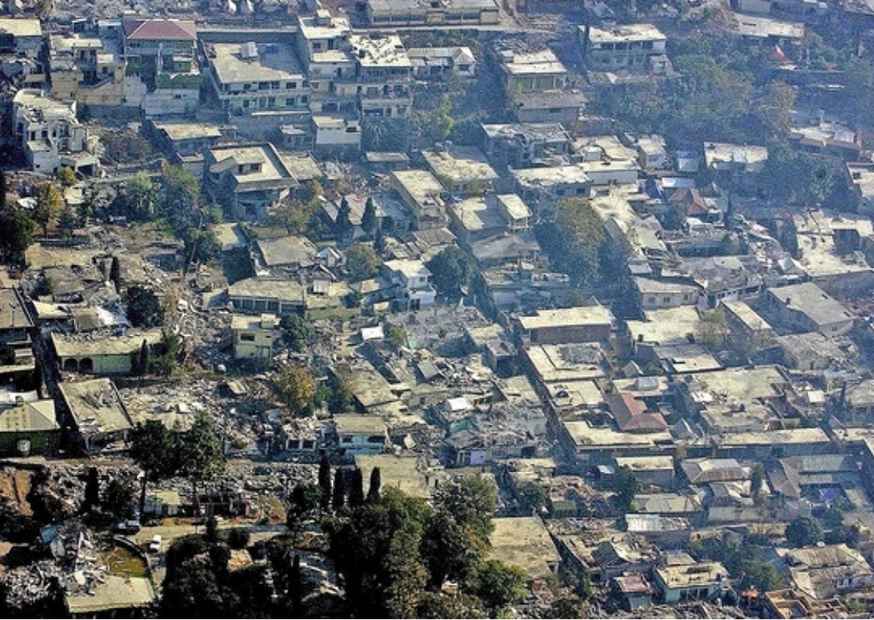MUZAFFARABAD, PAKISTAN: Almost twenty years after the catastrophic 2005 earthquake, the people of Azad Jammu and Kashmir (AJK) continue to live with memories carved in loss, destruction, and unfulfilled promises. The tremor that took nearly 73,000 lives and flattened entire communities has left behind wounds that neither time nor reconstruction has been able to heal.
For survivors like Muhammad Shafique Mir, now in his seventies, the memories remain painfully vivid. The quake reduced his multi-storey home to rubble, burying five family members beneath it. “You never forget the silence after the screams,” he says, echoing the sentiments of countless others who saw their lives collapse in minutes.
Despite the passage of two decades, the pace of reconstruction remains painfully slow. The Earthquake Reconstruction and Rehabilitation Authority (ERRA), along with its provincial counterparts, had pledged thousands of projects — schools, hospitals, and housing — but a staggering 1,700 federally funded schemes remain incomplete, including over a thousand educational institutions. Many survivors still live in temporary structures or poorly built homes that barely meet basic safety standards.
The emotional toll has been equally devastating. Mental health experts report widespread post-traumatic stress and depression among survivors, particularly those who lost entire families. For some, the trauma is too heavy to bear — many have chosen to leave Muzaffarabad altogether, unable to face the reminders of that fateful October morning.
Urban rehabilitation, once promised as a model of resilience, is also marred by corruption and mismanagement. Projects meant to improve infrastructure or develop satellite towns for displaced families have been riddled with delays and allegations of favoritism. While government buildings now mostly comply with quake-resistant codes, private constructions remain dangerously unregulated, raising fears of future disasters.
Every year, as October 8 approaches, the grief resurfaces — not just for the lives lost, but for the promises broken. The survivors of 2005 are not only rebuilding their homes; they are still fighting for recognition, accountability, and a sense of closure that has yet to arrive.
This story has been reported by PakTribune. All rights reserved.



